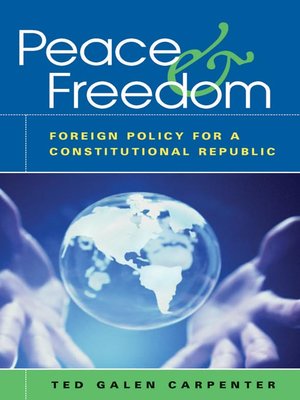
Sign up to save your library
With an OverDrive account, you can save your favorite libraries for at-a-glance information about availability. Find out more about OverDrive accounts.
Find this title in Libby, the library reading app by OverDrive.



Search for a digital library with this title
Title found at these libraries:
| Library Name | Distance |
|---|---|
| Loading... |
The end of the Cold War altered the global strategic landscape in fundamental ways, yet U.S. policymakers were slow to adjust to the new realities. While that process of adjustment was still under way, the September 11 terrorist attacks on the United States created a new set of issues. Virtually all of Washington's military campaigns in the post-World War II era had been discretionary. For good or ill, America's military power had been used almost exclusively as an instrument of U.S. foreign policy in far-flung regions of the world. This time, though, the American people must repel a direct threat to their security and well-being.
In this collection of articles published since the mid-1980s, Ted Galen Carpenter addresses a wide range of foreign policy topics. Peace & Freedom outlines a coherent strategy for dealing with terrorism, but the scope of the book is much broader than that. Carpenter presents a comprehensive case for an entirely new U.S. foreign policy — one of "strategic independence." In the pages of Peace & Freedom, Carpenter examines many important issues, including relations with such key international players as China, Russia, and the European Union and such perennial problems as the Israeli-Palestinian dispute, instability in the Balkans, and tensions in the Persian Gulf region. He is relentless in his criticism of faulty U.S. policies, such as the willingness to let the European and East Asian allies free ride on Washington's security guarantees and the stubborn folly of continuing to wage the international war on drugs.
Throughout the book, Carpenter emphasizes that U.S. foreign policy must not merely become more effective, although that is clearly an important objective. It must also protect and promote the values that have made America a great country. In short, America's foreign policy must be appropriate for a constitutional republic based on the principles of limited government and individual liberty.







